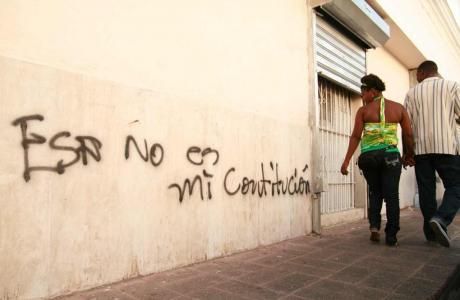Steve and I are back in the Dominican Republic for part two of our reporting here. On this trip we want to delve into the tumultuous relationship between the Dominican Republic and Haiti – the two nations that share the Caribbean Island of Hispaniola. We also want to find out what's happening to the hundreds of thousands of Haitians who have crossed the border into the Dominican Republic, and to the children and grandchildren of Haitians who arrived decades ago to do the hard job of cutting sugar cane, which was once the main industry here.
The situation, we've heard, is grim. Not only do many Haitians and Dominicans of Haitian descent still live in poverty, but second and third generations born in the Dominican Republic are being denied citizenship. Because their grandparents or parents were illegal, the government says, they're illegal.
But what is "illegal?" And what does this mean in practice? Is this country, with its strong ties to the U.S., on the verge of one of the Western Hemisphere's worst civil rights crises, with devastating human rights violations? Or is the Dominican Republic, not a rich country, simply trying to protect itself from an overwhelming wave of immigration from its even poorer neighbor?
Central to these questions is the new Dominican constitution, passed at the height of the Haitian earthquake relief. Some here say the new laws of the country are undermining the education, health and stability of almost one tenth of the population.
The answers are important for the region's stability. At stake is the future of one of the U.S.'s most important partners in the hemisphere, and the fate of hundreds of thousands of people here who have found themselves on the margins of society.
To explore these questions, we want to meet people whose lives show the intertwined history of Haiti and the Dominican Republic, and the current controversies.
In this blog we'll share some of our reporting, but we'll also write about how we're actually doing this. We're embracing a multi-platform narrative story-telling approach for this reporting project, which means we're shooting video, reporting for print pieces, recording audio, taking photos, and generally doing the frantic and somewhat clumsy dance of modern multimedia international reporting.
